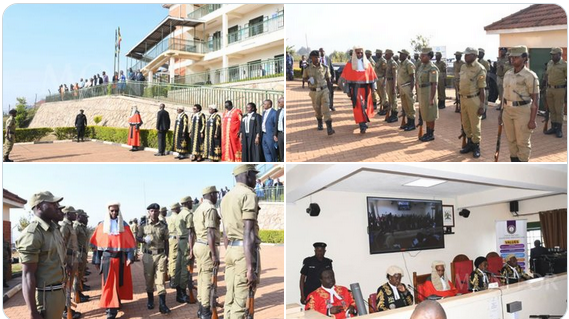The Uganda Court of Appeal is preparing to hear 25 criminal appeals in a three-day session in Kampala, starting July 22 and concluding on July 24, 2024. The session, presided over by Justices Fredrick Martin Stephen Egonda-Ntende, Cheborion Barishaki, and Dr. Asa Mugenyi, will address a range of criminal cases, with murder and defilement cases dominating the docket.

According to the cause list signed by Deputy Registrar Lillian Bucyana, murder and defilement top the list with six cases each, followed by robbery with four cases, abuse of office with three, and rape with two. The remaining cases include appeals on giving false information, trespass and malicious damage, false pretense, and grievous harm.
Notable appeals include two appellants seeking to overturn life sentences for murder and aggravated robbery. The state is also appealing in two cases: one against an acquittal for abuse of office involving a former Principal Civil Engineer at the Ministry of Works and Transport, and another against a stay of proceedings in a trespass and malicious damage case.
The appeals to be heard were filed between 2014 and 2023. Bucyana noted that while the general policy for cause listing is “first in, first out,” exceptions exist. The Court of Appeal prioritizes appeals from the Anti-Corruption Division, regardless of the appeal’s age, once the lower court record is available.

This session highlights the ongoing challenges in Uganda’s criminal justice system, particularly concerning violent crimes and crimes against children. It also demonstrates the court’s efforts to address a backlog of cases spanning nearly a decade.
As the Court of Appeal prepares to hear these cases, its decisions will likely have significant implications for the appellants and the broader interpretation of criminal law in Uganda. The focus on serious crimes such as murder and defilement underscores the court’s role in addressing critical issues affecting public safety and the protection of vulnerable populations.
The outcome of these appeals may set important precedents and contribute to the development of Uganda’s criminal jurisprudence. Moreover, the court’s handling of cases from various years reflects its commitment to addressing both recent and long-standing legal disputes, ensuring that justice, though sometimes delayed, is not denied.



